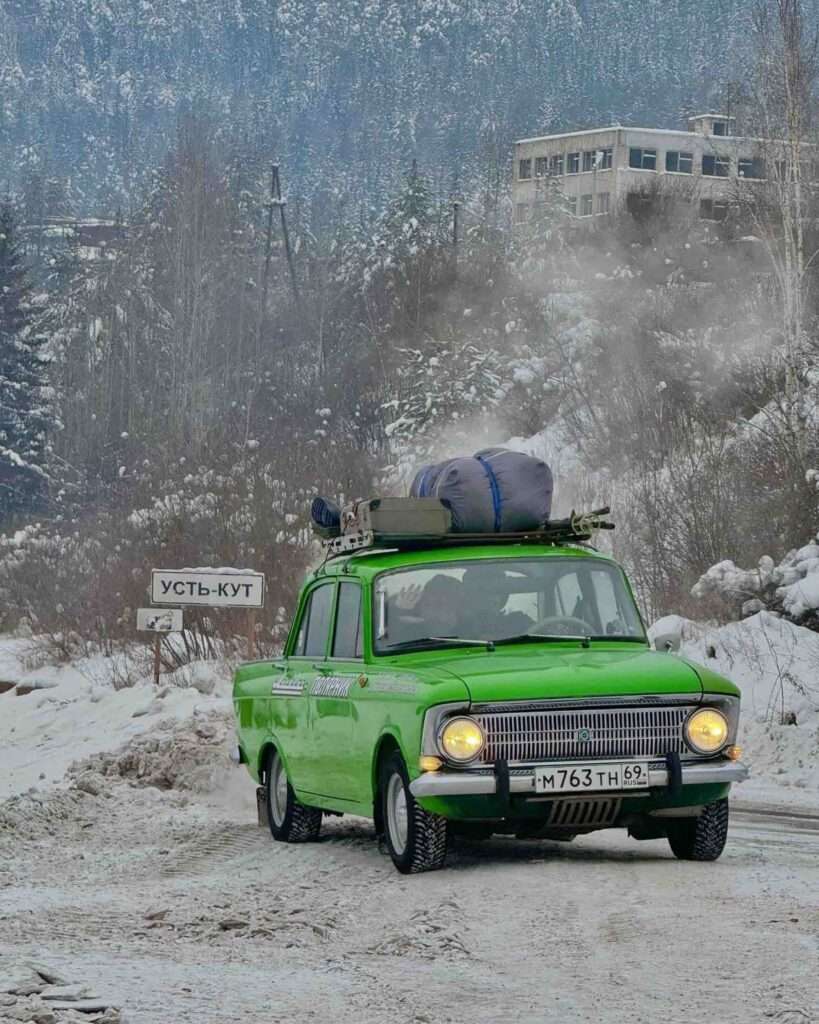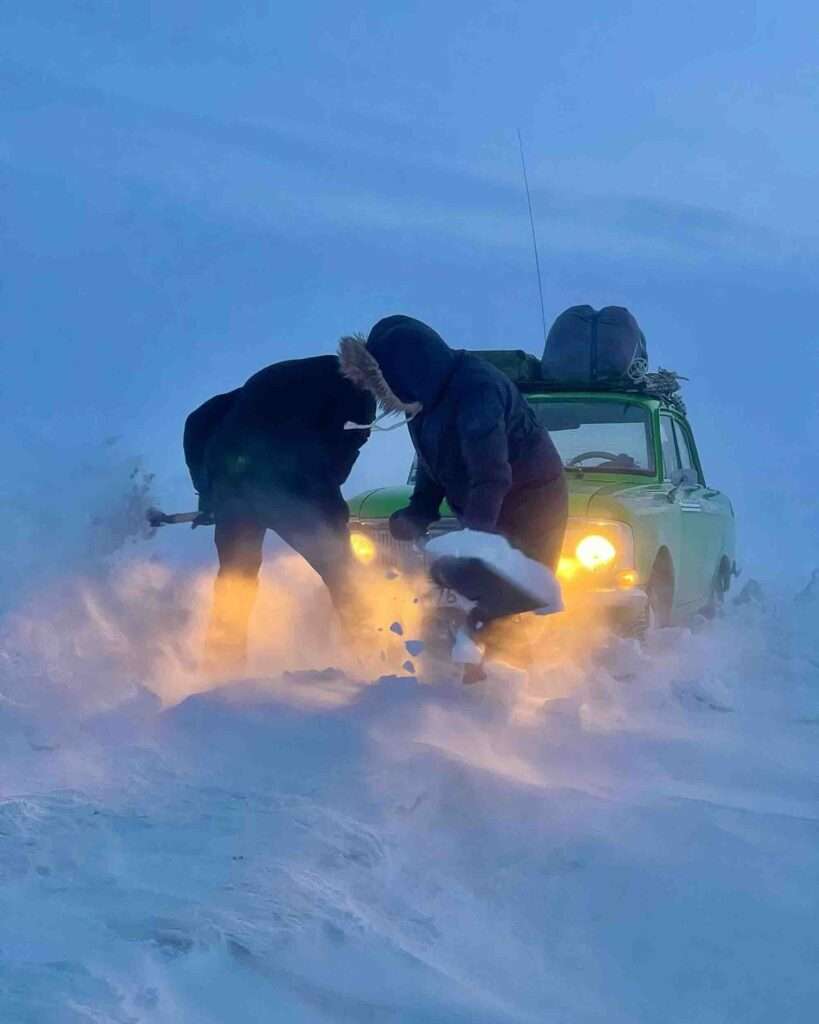This is the moment a veteran Moskvitch motor from Soviet Russia’s Cold War era is brought back to life for an astonishing 6,000-kilometre run to the Arctic Circle.
In its heyday in the 1960s and 1970s the Moskvitch 412 was a byword for unreliability with a claimed top speed of 100 mph that could never be reached outside of official tests.
And its 80 bhp engine, said to have been ripped off from a BMW design, crawled to 60 mph in 16 seconds.
But car mad Alexander Elikov was determined to restore the Soviet classic and drive it from Tver, near Moscow, about 6,000 kilometres (3,700 miles) to the northern tip of Yakutia, in the Russian Far East.
Video footage of the expedition shows how he and his pals carried out a painstaking restoration of the Moskvitch, renamed the ‘Polar Explorer’.
There was no satnav, just a cassette player for music and a bootload of spares and gaffa tape for roadside repairs.

Along the way they had to cope with temperatures of minus 40 degrees and deep snowdrifts that were more push start than Pushkin.
The team finally made it to the remote village of Yuryung-Khaya with a population of just 1,000 and an economy based on reindeer herding, fishing, and farming.
Alexander explained: “It was in early December. Then, along the northern ice-free roads we again crossed the Ural Mountains in the car and arrived in Omsk on New Year’s Eve.
Unused Cars From 1990s Found In Abandoned Dealership
“We left the car there and went home. After New Year, I flew back from Tver to Omsk.
“And then from 9th January until the beginning of the 20th we travelled to the village of Yuryung-Khaya, then to the city of Mirny.
“Overall, during the decisive stage, we spent 20 days on the road – from Omsk to Yuryung-Khai, which is 6,000 kilometres, and then from Yuryung-Khai to Mirny along the winter road, which is almost 2,000 kilometres [1,242 miles] we left the Moskvitch there in Mirny to return there in the summer for the Yakut holiday Issyakh.”
He added:”From there in the summer we will go to Magadan and further to the southernmost settlement of the Far East of the country – the village of Khasan.


“And then, of course, I will return back to Tver.”
Newsflash spoke to Alexander in an exclusive interview and he explained: “Twenty years ago, when I had just turned 18, I stole from my dad’s Moskvitch, exactly the same, green, and went on my first independent road trip, and immediately drove 4000 kilometres [2,485 miles] from home.
“I left the city of Novy Urengoy, which is in Yamal in the Arctic and came to the city of Tver, where my parents were on holiday at the time. And this trip became so bright, memorable, crazy in all plans.
“After that, every first day of my holidays, I got behind the wheel of that car.
Airport Cars Parked On Runway To Stop EU Flights Landing
“This trip was always in my head and after 27 years I realised that I wanted to repeat this trip, precisely because I found exactly the same Moskvitch.
“I set off in it a year ago on a trip from Tver to Novy Urengoy, that is, in the opposite direction along the same route.
“And what’s most interesting is that all this time I used the Atlas my dad had used when he was travelling.
“I took the same atlas and drove back to the Arctic in the winter in exactly the same Moskvitch.


But he cautioned: “I do not encourage anyone to go in a Moskvitch. But if I got there in such a Moskvitch, then anyone can do it.
“People from any part of the world can easily get there with a little preparation.”
Despite the restoration the Moskvitch was always breaking down, said Akexander.
He admittded: “Since it was a very old car, it broke down almost every day, many times.
“The most unpredictable parts broke off in the most unpredictable places.
“I had a lot of spare parts for this car. I took with me a lot of parts for repairs, after all, the car is old, it has simple parts and it can all be repaired with wire, electrical tape.
“As I always say, if you can’t repair your car with tape, it means you just don’t have enough tape.
Cops Bust 107 Sports Cars In Autobahn Boy Racer Rally
“With the help of Russian ingenuity, with the help of improvised means, some pieces of wood, sticks, a hammer, pliers and a screwdriver, everything was constantly repaired, although there were a lot of breakdowns.”

Alexander said that he quit his job four years ago and now works as a traveller, saying: “That is, I now make money through tourism.
“Since I know the Arctic better than anyone, I can say for sure that I am the number one driver in the Arctic.”
To find out more about the author, editor or agency that supplied this story – please click below. Story By: Amelia Neagu, Sub-Editor: Joseph Golder, Agency: Newsflash
The Ananova page is created by and dedicated to professional, independent freelance journalists. It is a place for us to showcase our work. When our news is sold to our media partners, we will include the link here.




